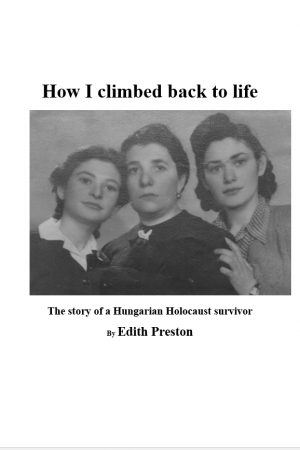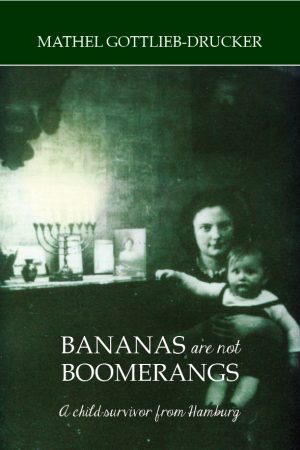Description
Ursula grew up in luxury in Bialystok. Her Paris-educated mother had a lot of style and the family lived very elegantly. Ursula had one sister, Jara, four years younger. Their paternal grandfather was the state-appointed rabbi for Bialystok and very learned. Ursula’s parents were highly assimilated.
Ursula had a bright enquiring mind and did well at school, especially in gymnastics. Then the Russians took over the city. The family were businesspeople, therefore enemies. When they returned from a holiday, their long-term housekeeper announced she was a communist and would not let them into their house. They moved in with their rabbi grandfather, until the family was deported to Siberia. Ursula only found out at the last moment and writes about packing bedding and clothing and demanding the soldiers help her. She found her parents and grandparents in a cattle car and joined them. Meanwhile, Jara was in a Pioneer’s youth camp.
In Siberia, the family, moved from Bijsk to Altejskoje Sielo in the Altai mountains. It was an incredibly beautiful area with forests filled with wild tulips and mushrooms. There was also very little food. The family returned to Bijsk, where both her grandfather and father died. Ursula looked after everyone. She carried water from the river and cared for a vegetable garden miles from home. Finally, her grandmother died and the family returned to Poland. Jara had disappeared. Their maternal grandmother, crippled with arthritis, went to the gas in Auschwitz with her devoted non-Jewish carer, who would not leave her.
After a year in Sweden, Ursula and her mother came to Melbourne, where she married Felix Flicker and had one daughter, Helen Jara. Ursula was awarded an OAM for her work as a translator at the Royal Children’s Hospital and was an outstanding curator at the Jewish Holocaust Centre in Melbourne for many years.




